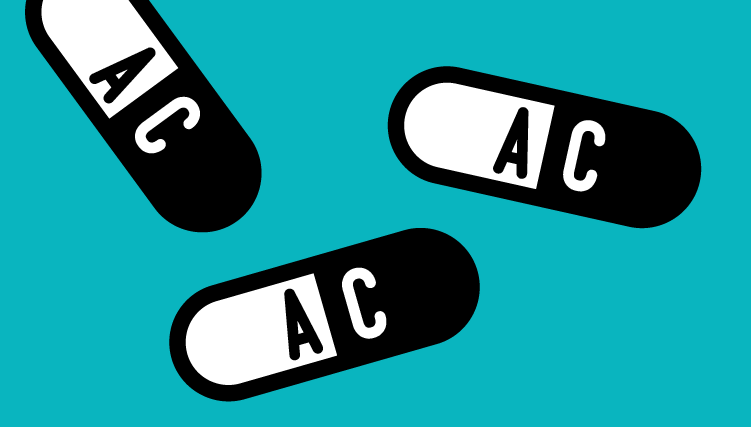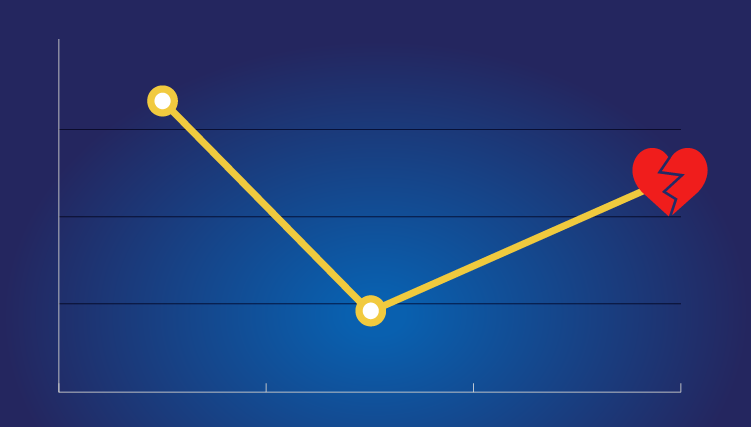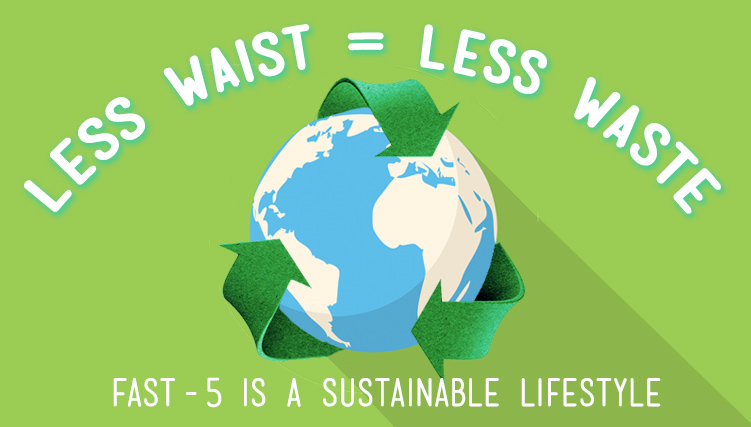The New York Times recently published an article by Gina Kolata (@ginakolata) about a six-year follow-up study done to see how the participants in the 2009 (Season 8) Biggest Loser competition have fared since the season finale. Fourteen of the 16 participants agreed to work with the NIH team of researchers, led by physicist Kevin Hall, PhD (@KevinH_PhD).
The outcome was horrible and may send a lot of people off-track on their efforts to lose weight. Of the 14 participants, only one was at a weight lower than that measured at the end of the thirty-week competition. The others had gained weight since the end of the program, and some weighed even more than they did before starting the contest. The winner of the contest, Danny Cahill, started the contest at 430 pounds, lost 239 pounds during the seven-month (30-week) competition and finished at 191 pounds. He now weighs 295 pounds. According to the study, his resting metabolic rate remains 800 calories per day below what it was when he started the competition and about 600 calories per day less than when he won the competition.
The sustained drop in the contestants’ metabolic rates has made it difficult for them to maintain the weight they achieved in the contest. Even though all of them were highly motivated by personal interest and public exposure, all but one found maintenance or additional loss impossible.
Ms. Kolata quoted some doctors’ comments. Here’s what they had to say:
Dr. Robert Huizenga, the Biggest Loser physician, suggested that the contestants must exercise for nine hours per week to maintain their losses.
Dr. Michael Rosenbaum said, “The difficulty in keeping weight off reflects biology, not a pathological lack of willpower affecting two-thirds of the U.S.A….It is not clear whether this small imbalance and the resultant weight gain that most of us experience as we age are the consequences of changes in lifestyle, the environment or just the biology of aging.”
David Ludwig, MD, PhD, said, “There are no doubt exceptional individuals who can ignore primal biological signals and maintain weight loss by restricting calories…for most people, the combination of incessant hunger and slowing metabolism is a recipe for weight regain—explaining why so few individuals can maintain weight loss for more than a few months.”
Dr. Joseph Proietto said, “The only way to maintain weight loss is to be hungry all the time. We desperately need agents that will suppress hunger…”
The takeaway from the doctors’ comments:
- people should exercise nine hours per week to maintain weight loss
- the imbalance in the average American diet may be due to lifestyle, the environment or aging, but we’re not really sure
- incessant hunger is something people have to deal with to lose weight or maintain weight loss
- we need a new drug (cue the Huey Lewis track)
Now, you readers who are familiar with AC/Fast-5 are probably snickering about this time. Exercise nine hours per week? Hungry all the time? Incessant hunger? Where have they been in the last ten years? Let’s look at some reader comments:
RajS: “The elephant in the room is that we are living in a society where food is abundant, and temptations abound. We are bombarded with food commercials on TV. Grocery stores are packed with delicious, high calorie items that we end up buying despite our best intentions. People keep bringing delicious doughnuts and bagels to work and leave them lying around for everyone to eat. I have found that when I go overseas – specifically, to India to see my mother – I lose weight because I just don’t eat junk food, and I don’t miss it either. I also end up walking a lot more over there than I do here. What this article is missing is the psychological and environmental factors that cause addiction to unhealthy foods.”
ACW: (edited for brevity) “I went from 175 lbs to 100…and have kept it off. I knew, instinctively but also from watching other people’s diets fail, that your metabolism slows down, and that I’d always have a ‘thrifty metabolism’ that needed fewer calories…And remembering how it felt to be fat – to labour to climb stairs, as if a 70-lb monkey was forever on my back…So you can’t just go on a diet and then go off. You must change your life. For me, at least, it was worth it. Nothing fattening that I ever ate tasted so good as being able to climb stairs without panting, or work in the garden, or ride a bike.”
The takeaway from the reader comments:
- The problem is not biology! The problem is living in a sedentary culture with excess food!
- You must change your life!
Most people looking at the Biggest Loser participants’ slowed metabolism see it as something gone wrong or something broken. I ask: Is there anything the participants can’t do now that they could do at the higher metabolic rate? They can do everything they could do before, including gain weight, with less food. The real change is the amount of food their body wastes. Having a lower metabolism when activity and ability remain the same is a more efficient metabolism—you get the same amount of work for less food (fuel). How, when and why our bodies waste fuel is the subject of a great deal of research, but changes in resting energy requirements makes it clear that the amount of fuel wasted can change.

The participants went into the competition after years of excess intake during which their bodies received few, if any, indicators of a need for efficiency. It was okay if their digestive process and intestinal absorption worked poorly. It was okay if their cellular powerhouses (mitochondria) ran inefficiently and leaked energy as heat. It was okay if their blood pressure and heart rate ran high. Their bodies were operating in a fuel glut and energy demands were low. No worries!
Then came the Biggest Loser competition. The all-day (and part of the night) exercise replaced the participants’ mostly sedentary behavior; scant portions replaced generous food intake. Mr. Cahill lost weight, most of it fat, at a rate greater than a pound per day. From the body’s perspective, fat is precious. It’s the currency of survival when things get tough, and from the body’s perspective it’s good to have about 20-25% of body weight in the fat bank in case of famine. The participants began losing their fat reserve at an astonishing rate. Imagine how you would feel if your life savings started disappearing at a rate of two percent per week, as Mr. Cahill’s fat reserve was. If you started with $100,000 on New Year’s Day, you’d be penniless before Christmas.
To Mr. Cahill’s body, starvation looked inevitable, with death only about 3-4 months away if the same rate of loss continued. The primitive control systems in his brain did not know this was a time-limited contest. Mr. Cahill’s body engaged systems to slow down the loss. Absorption from the intestines probably increased. The efficiency of his body’s energy use increased, and by the end of the contest, his resting energy requirement had dropped by about 200 calories per day.
The story’s headline says “their bodies fought to regain weight.” Their bodies were not fighting to regain weight, they were preparing to survive a similar threat in the future. They increased their efficiency to better insure survival when faced with a future Biggest Loser event, which their bodies, including their brains’ primitive parts, interpreted as a seven-month famine requiring tremendous physical exertion to acquire meager food intake. The brain’s primitive automatic protective systems have no way of knowing another contest will not happen again. It happened once; it can happen again. By trimming energy needs, more fuel can be stored so that the next time Mr. Cahill faces a Biggest Loser scenario with a tremendous demand on activity with a sparsity of food, he’ll survive in good shape just as he did in 2009.
Let’s take a moment to recognize that the body’s ability to reduce its fuel requirements in times of scarcity is just plain amazing. The human body can be very thrifty when it needs to be, and that’s a good thing. When this happens, metabolism is not broken, it’s improved. The body is not fighting; it is responding to its environment in the same way that made it a worldwide success over the last 100,000 years. It is preparing for survival against threats that Mr. Cahill and the other contestants will hopefully never see.

Now, I have to give Dr. Proietto credit. In my takeaway above, I translated his comment as “We need a new drug,” which may be what he meant, but the word he used was “agent.” That’s good because the agent he’s looking for already exists and it’s not a drug. The agent is a schedule—one that corrects appetite. If you correct appetite, you don’t have to fight it. An appetite correcting eating schedule (ACES) is one that has the human body, with its primitive protective systems residing in the brain, working with the conscious intent of the mind it carries.
When appetite correction (AC) is achieved, weight loss is gradual—typically a pound per week, and maintenance is essentially painless—you just maintain the schedule to which you’ve already adapted. There’s occasional hunger, but it’s mostly clock hunger, not the incessant, ravenous, driving hunger that the Biggest Loser participants reported and Dr. Ludwig described as being ignorable only by an exceptional few.
The biggest problem people encounter on an AC schedule is the social pressure to eat, and once adapted to it, you’ll see how accurate RajS’s comment above is, and you’ll find an AC schedule is a very powerful tool for shielding oneself from the cultural influences that drive overeating. You can read more about appetite correction in the free sample chapter or spring for the whole book in paperback or Kindle format, and learn that it’s not ghrelin (an appetite-related hormone) but gremlins that we need to worry about. As more people adopt an eating window, the lifestyle gets easier, because the social pressure to eat at every occasion declines.
And, because the Biggest Loser contestants tried hard both during the competition and afterward to change their lifestyles, but didn’t get the “agent” they needed, I’m offering the study participants a free coaching session to get started so they can go back to Kevin Hall next time in goal-body condition and snicker about exercising nine hours per week, incessant hunger and “depressed” metabolism that is really just optimized for survival.



4 comments
Incredible post!
I read the NYT article with lots of interest. Been following the ACES for about a week and SHOCKINGLY easy.
Talking about how the primitive brain interpreted the experience and describing this in terms of efficiency and amazing body response really resonated
Thanks so much!!!!!!!!
That was the best post on metabolism rate changes I have ever read. I love your perspective, I think you are absolutely right. I practice Fast-5 myself (in combination with gluten-free food choice) and I would say that this was exactly “the agent” I was looking for. The benefits are so great that I am willing to fight the immense social pressure. Which btw reminds me of the “crabs in a bucket” mentality.
A voice of reason = what a relief. I read the original article (the NYT is my home page) and felt deep anger. I’ve already told you what Fast-5 means to me. It has brought dignity to my life after a long lifetime of shame and a feeling of failure because of my severe eating disorder. People marvel at my 155-pound weight loss and my ability to maintain my now-normal weight. It isn’t magic. It’s eating from 5 p.m. to around 9:30 p.m. every day and working out six-days-a-week. No scale, no weigh-ins, no medication, no cravings, normal pleasant hunger. Once again, I thank you for this life-enhancing protocol.
Thanks for your comment, Marly! Congrats on the 155-pound weight loss AND successful maintenance! It’s not often sees “pleasant” and “hunger” right next to each other as you put it, but I know what you mean. You feel it, but if it comes before the eating window opens, it’s mild and transient, and if it comes during the eating window, you eat and it disappears quickly. A big difference is that whatever time it comes, it doesn’t reach up in your brain and drive you to eat more than you need.